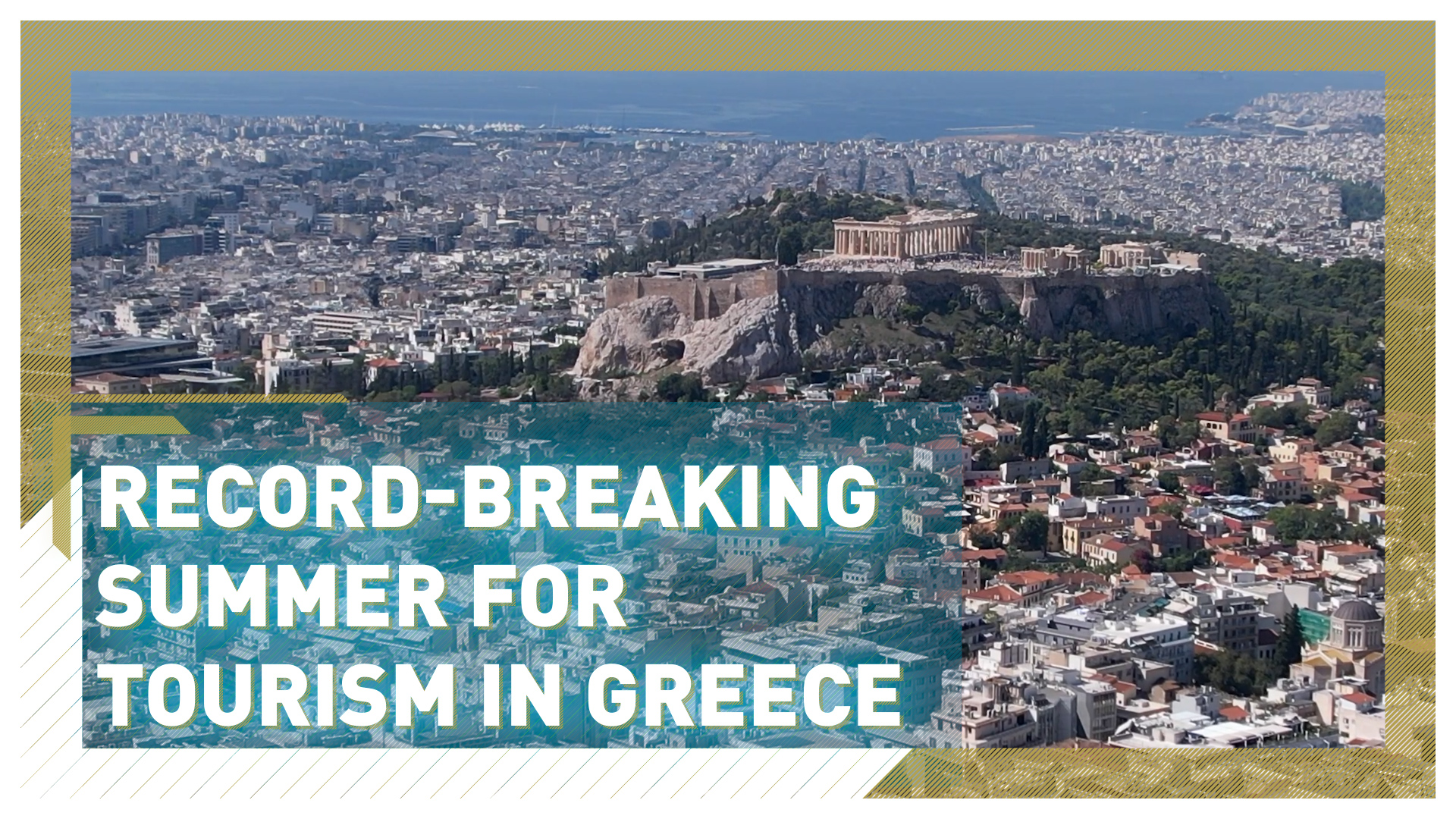03:08

COVID-19 and the political turmoil inflicted by the Ukraine conflict continue to upend much of Europe's travel industry, but this summer surprisingly saw record-breaking figures for tourism in Greece.
However, while officials are already planning for next year's busy tourism season, archeologists are calling for the government to find a "fine balance" between attracting visitors and protecting Greece's ancient monuments.
The Parthenon in Athens, built 2500 years ago in honor of the Greek goddess Athena, is today one of Europe's most popular destinations. During peak season over one million visit the UNESCO heritage site every week. But scientists say such popularity is proving to be devastating.
"We have reached a point where there are just too many tourists," head of the Hellenic Archeologist Association, Despina Koutsouba, tells CGTN Europe.
"It's also bad for tourism itself," she adds. "Just think about going to a monument and we're surrounded by thousands or even millions of other people. Your experience will not be the same."

The Parthenon in Athens sees over one million visitors every week during peak tourist season. /CGTNEurope
The Parthenon in Athens sees over one million visitors every week during peak tourist season. /CGTNEurope
Away from the Greek capital and across the Aegean sea lies the island of Rhodes. It's another popular tourist destination that hosts one of the largest UNESCO heritage sites in the country, the medieval city of Rhodes.
The island saw a 15 percent jump in arrivals last summer, opening up after the worst of the coronavirus pandemic to welcome around three million tourists - a major boost to the local economy.
While these arrivals may be good for business, it has made the work of those trying to preserve the island's historic sites much more difficult.
But those in the tourism industry are defiant.
"Many people like to have all the benefits of tourism without the consequences, but it doesn't work like that. Everything has its benefits and consequences," says head of Rhodes Hotel Association, Manolis Markopoulos.
Read more:
Spanish police raid Europe's drug 'super cartel'
Banksy reveals new work in war-torn Ukraine
China's forgotten heroes

The island of Rhodes experienced a 15 percent jump in arrivals last summer. /CGTN Europe
The island of Rhodes experienced a 15 percent jump in arrivals last summer. /CGTN Europe
Markopoulos says archeologists need to include hoteliers and others in the discussions around monuments.
"They need to work with us, as it's us that bring the tourists here, and therefore the money," she says.
Besides visiting its famous pristine beaches and trying the local cuisine, millions of tourists come to Greece specifically for the historical sites. And for many archeologists, that's too many, as calls for a cap on tourists become commonplace.
But those in the travel industry believe a balance can be found without having to regulate the number of tourists.
"We are working with archeologists and provide each other with valuable information on finding a balance," says head of Rhodes Hotel Association, Manolis Markopoulos.
With Greece relying so heavily on tourism - it accounts for more than 20 percent of its economy - a balance may well need to be struck.
But after surviving the rise and fall of multiple empires, industrialized wars, and a plethora of natural disasters, it remains to be seen whether Greece's historical sites will be able to pull through the latest threat - their own popularity.